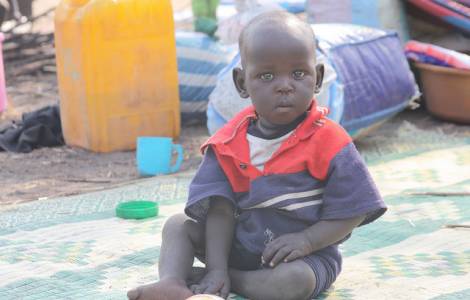
European Commission DG ECHO
Yida (Agenzia Fides) - Around 60 percent of Sudanese refugees are minors, looking for an opportunity to complete school in South Sudan. One of the first stops for people fleeing the conflict in Sudan’s South Kordofan region is the town of Yida, 20 kilometres across the border in South Sudan. The town shelters more than 70,000 Sudanese refugees who have set up homes, businesses and have established themselves within the local community. But now, in an effort to decongest Yida and provide better services, the government and humanitarian partners are trying to persuade them to relocate to an official camp in Ajuong Thonk, further south in Unity State, established in 2013. Currently the camp shelters 31,000 and is likely to expand further still with the end of the rainy season, which will ease travel across the border.
The government has been asking people to move for two years, however, the refugees do not want to move because life in Yida is cheaper. The downside of living in Yida is that the humanitarian organisations only provide emergency food, not the full panoply of services available in Ajuong Thonk. Yida is an important economic centre for both the host community and refugees. It boasts markets, farms, transport services and basic schools. Rebel JEM and SPLM-N combatants are a constant presence in Yida, and it is known that some of them have relatives among the refugees. Ajuong Thonk has its attractions. It boasts in-camp roads, a primary healthcare centre, three primary schools, a secondary school and a computer lab.
Here, some 11,000 students receive primary and secondary education in Ajuong Thok, supported by NGOs, the UNHCR and the South Sudanese government. However, more than half South Sudan’s own children are out of school largely as a consequence of its own civil war, which broke out in 2013. During the conflict, schools were destroyed or turned into barracks, with children increasingly conscripted into the ranks of government and rebel forces. Despite being one of the poorest countries in the world, South Sudan hosts more than 263,000 refugees, mostly from Sudan, neighbouring Central African Republic, the Democratic Republic of the Congo and Ethiopia. The number is expected to reach 300,000 this year. As a result of the conflict nearly 25 percent of the population are in urgent need of food assistance. (AP) (Agenzia Fides 10/02/2016)